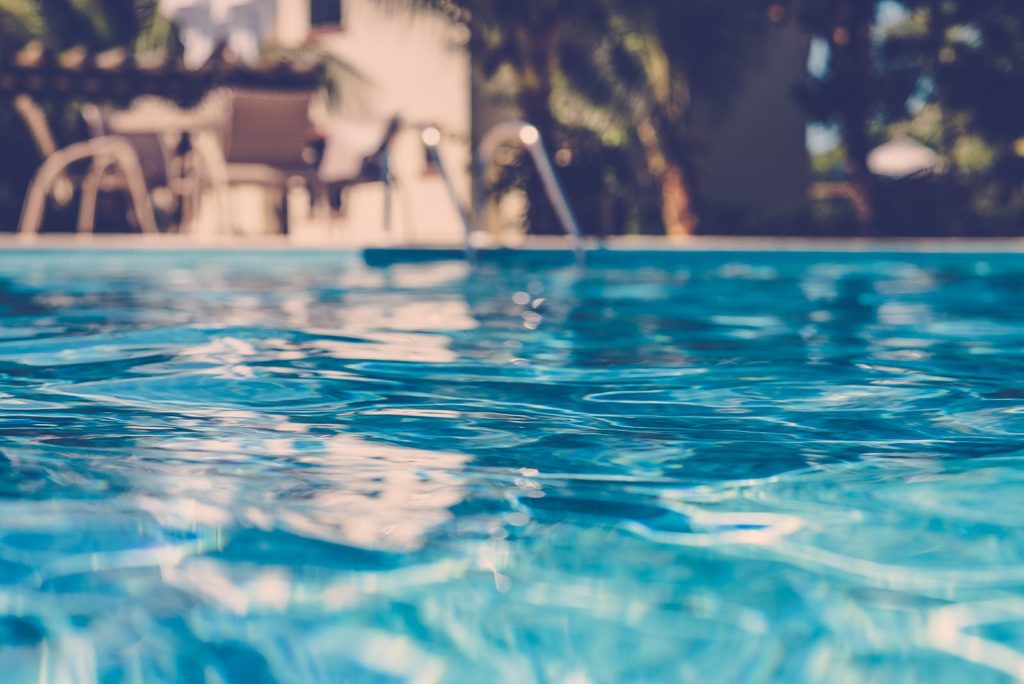Swimming Pool Hazards & How To Avoid Them

We have effectively kicked off Summer for the year, which means the kids are out of school and most community pools are open for business. Many local homeowners have in-ground pools on their property. This is a great perk for your family, and neighbors or visitors as well. However, it also poses a liability to the homeowner and increases your homeowner’s insurance. Whether you’ll be swimming at a community pool or your personal in-ground pool, here’s a few things you need to know about the hazards of swimming pools and how to avoid them.
- Harmful Pool Cleansing Chemicals. Sure, we all want to swim in water that has been properly treated with the right combination of cleansers. However, some of those same cleansers can also pose health risks. If you can smell chlorine, the pool is over-chlorinated. In addition, those same pool cleansers can cause harm to younger children if they are stored improperly. Ensure any chemicals (chlorine or pH down acids) are stored away from children’s reach and in a cool, dry place.
- Electrical Exposure. To ensure a safe pool environment, cleaning mechanisms used are typically electric. All electrically powered equipment has the potential to introduce stray electrical current into the pool. Following all of the posted rules and regulations for pool safety either posted by a pool manager, or your personal pool, is key to remaining safe and avoiding electric shock. In addition, knowing the signs of electrical exposure is part of prevention against electrical exposure.
- Risk of Drowning. This is the most obvious of the pool hazards, but just as dangerous and important to be aware of. For parents of young children, ensuring they are properly supervised or trained in swimmer’s safety and pool safety is essential. Remember to never swim alone or allow children to swim alone. Always supervise young children near the pool, even if they know how to swim. If you want your young children to be able to enjoy the pool, be sure floaties are properly secured to the child before they enter the pool and that you are close by to supervise. Never leave children alone near water
- Diving Boards. Are you a fan of jumping off the diving board and cannon balling into the deep end? If so, you could be at serious risk of neck, back, or head injury. This is another one of those swimming pool hazards that is best to avoid. If you’re not an experienced diver, perhaps think twice before diving head first off the diving board. Take a few precautionary “practice jumps” to get a feel for your trajectory as well as for the force you’ll be jumping in at. If you’re nervous, ask someone more experienced for pointers or read up on best practices for using a diving board.
If you have any questions, or you’ve been involved in an accident, please contact the law firm of Glenn, Mills, Fisher & Mahoney, P.A the top personal injury lawyer in Durham.



